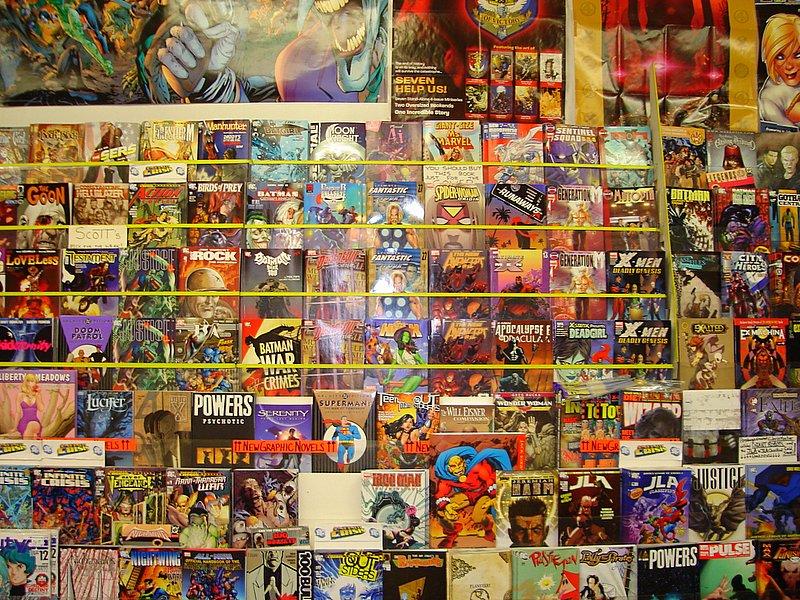Three years ago Wayne Wise, longtime employee of the comic book store Phantom of the Attic in Oakland, introduced the Chatham community to a class called Comics and Popular Culture.
At the time, his class offered an overview on this so-called ‘underground’ world, covering topics such as Fredric Wertham and his tirade against comics, the rise of the graphic novel and the explosion of independent comics in the 1980s and 90s. His class also offered comics as a new text for literary analysis.
Though some people would cram themselves into corners of Barnes and Noble reading volume after volume of manga series, most have not stopped to consider the importance of comics as a tool of social analysis.
His class disappeared for almost three years, but ultimately supportive faculty and an enthusiastic student body has finally brought Wise back to Chatham’s campus. Wise shared information about the changes to his class, what he hopes to accomplish, and the state of comics in the present social context.
“More adults are openly reading comics now and sharing them with their kids than at any time since the 1940s,” said Wise, alluding to the Golden Age of Comics. If you need pictorial representation, imagine Captain America punching Hitler in the face. That was the image on the first “Captain America” cover, one month before the United States would join WWII in December of 1941. One cover alone demonstrates American confidence in itself as a growing global power.
Similar covers and heroes portrayed sections of American culture during this age, notably in “Superman” and “Batman,” both heroes projecting two reactions to the Great Depression. With that said, comics become primary sources into different areas of our history. Sadly, this venue remains largely unexplored.
Having published articles and delivered lectures on comics–his most recent lecture being the Banned Book event held this past fall at Chatham–Wise understands the importance of using comics as a cultural text.
“[Comics] are stories and you approach it like you do anything else,” he said. For Wise, understanding comics in the cultural context does not involve simple knowledge of plot or characters. It requires comprehension of the history influencing these panels. Without the history, readers only digest half the story.
Comics both complement and deconstruct history, becoming especially complex in the post-Vietnam era. Wise aims to equip students with this historical context over the course of the semester. He does not assign comics as texts, but he spends time on the influence of critical pieces such as “Watchmen”, “Maus” and “The Dark Knight Rises.” In addition, he asks students to read one comic a week. Understanding comics, he reminds students, requires familiarity.
This class follows a three year hiatus. When asked what was different about teaching at Chatham the second time, Wise said, “I am more comfortable this time. Last week, I felt I hit the ground running.” He also cited familiarity with Chatham and its intellectual traditions as a difference in returning to campus.
On a structural level, Wise has strengthened his lectures, particularly those covering the last twenty years of comics. He has even incorporated some theoretical framework. Nothing migraine inducing–just enough to give students an analytical lens.
Wise has three years’ worth of new materials to his advantage, including the release of “The Avengers,” success of “The Walking Dead” TV series and the instant access of comics through video games and the internet. More than ever, comics are becoming the more attractive and available method to understanding the change in American culture.
“As I say in my introductory class, this is not the most important thing anyone is doing in any given semester,” Wise said.
However, the class does more than Wise gives it credit for. Hopefully it will not be another three years before the class is offered again.



